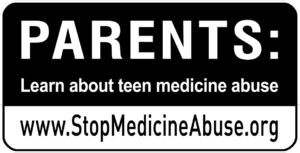Every month, we keep you informed on the latest studies and research in our “Not My Teen” blog series. Today, we’re looking at the latest viral internet challenge that is putting teens at risk, the Tide Pod Challenge.
You may have heard about the latest risky behavior some teens have been taking part in, The Tide Pod Challenge, which involves teens daring each other to eat the laundry detergent pacs. In late 2015, The Onion wrote a satire piece about eating the pods, which was followed by a CollegeHumor video in mid-2017. What was intended to be a joke grew into a viral nightmare of memes and challenge videos resulting in the U.S. poison control centers receiving over 250 reports of teens eating Tide PODS®. What teens don’t realize is how dangerous this behavior can be. Eating the pods can lead to hospitalization, side effects such as vomiting, difficulty breathing, loss of consciousness, and even death.
Another household item that some teens misuse is OTC cough medicine containing the active ingredient dextromethorphan. 1 in 30 teens have admitted to consuming excessive amounts of cough medicines to get high. Similarly to teens thinking Tide Pods are “just soap,” they may believe that dextromethorphan is a safer way to get high than abusing prescription or illicit drugs, because it is legal and available over-the-counter.
Like the laundry pacs, cough medicine is safe when used as directed, but can be harmful when misused. Side effects of DXM abuse include blurred vision, confusion, slurred speech, rapid heartbeat, numbness, drowsiness, disorientation and impaired physical condition.
Parental awareness is the first step to preventing risky behaviors such as consuming Tide PODS® or abusing cough medicine, and there are steps you can take to prevent it in your home and community:
- Keep an eye out for warning signs of abuse such as loss of interest in hobbies or a hostile, uncooperative attitude.
- Listen for words like “dexing” or “robotripping,” which are among the list of slang terms teens use for talking about abusing cough medicine.
- Look for the icon that lives on OTC cough medicine packaging to let you know which medicines contain dextromethorphan, so you can keep a closer eye on it and be able to notice if it disappears or is suddenly half empty when no one is sick.

Teens who learn about the dangers of substance abuse from their parents are 50% less likely to abuse drugs. Be sure to do your research and stay up to date on teen trends. Look to consistently have honest and informed conversations with your teen about DXM, and other risky trends, such as the consumption of Tide PODS® in order to keep them safe and healthy.
Keep up with the Stop Medicine Abuse campaign on Facebook and Twitter to stay updated on studies, parenting tips, and more information on keeping teens away from risky behaviors.




